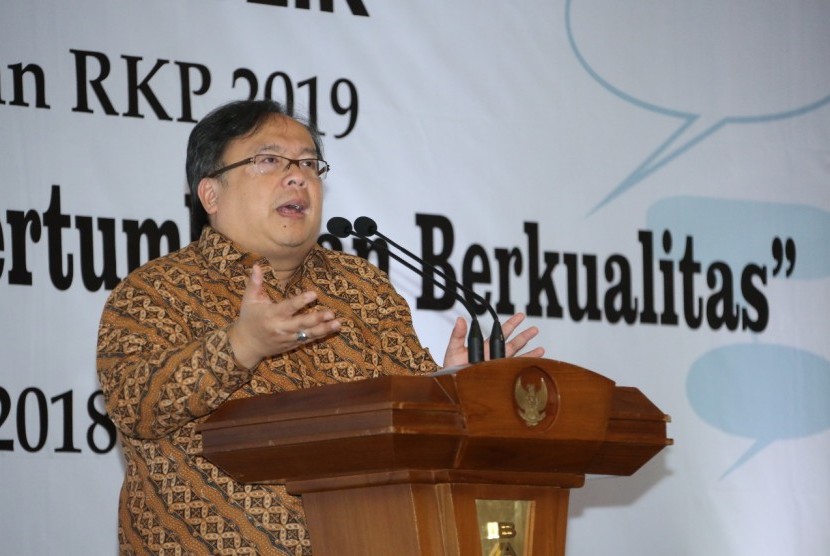REPUBLIKA.CO.ID, JAKARTA -- National Development Planning Minister and also Head of the National Development Planning Agency (Bappenas) Bambang Brodjonegoro has stressed the importance of manageable inflation to reduce the poverty rate. He explained that the key factor to reduce the poverty rate is the government's intervention.
"However, there is still one important aspect that is to manage the inflation rate. It is not 100 percent dependent on the government, but there are several factors involved," Bambang said here on Wednesday.
He remarked that a high inflation rate will make the increase in income worthless. "Hence, it is crucial for us to maintain the inflation rate," he explained.
According to data of the Central Statistic Agency (BPS), food commodities that have a significant impact on the poverty rate in rural and urban areas are rice, cigarettes, eggs, chicken, instant noodles, and sugar.
Non-edible commodities that have a significant impact on the poverty rate are housing, fuel oil, electricity, education, and toiletries.
"Rice has a 27 percent contribution (to the poverty rate). It means that the price of rice should not be increased," the minister stated.
Cigarettes have a 10.21 percent impact on the poverty rate. Any increase in the price of the commodity would have a significant impact on the poverty rate.
"However, it does not mean that we could not increase the price of cigarettes. Their consumption must be reduced," he noted.
The impact of cigarettes on the poverty rate is higher than those of the housing sector, fuel oil, sugar, instant noodles, chicken, and eggs.
Also read: Indonesia succeeds in reducing poverty ratio: BPS
The BPS reported that the number of poor people in the country in March 2018 had declined to 25.95 million, or 9.82 percent, as compared to 26.58 million, or 10.12 percent, in September 2017. The number of poor people had declined by some 1.82 million in comparison with the data recorded during the same period last year.
During the period, the number of poor people in urban areas had declined by 128.2 thousand, from 10.27 million in September 2017 to 10.14 million in March 2018.
In rural areas, the number had declined by 505 thousand, from 16.31 million in September 2017 to 15.81 million in March 2018.
The inflation rate during the period had reached 1.92 percent, with the hike in the price of rice reaching its highest record at 8.57 percent. It has led to a slower reduction in the poverty rate, as compared to the previous period from March to September 2017.



